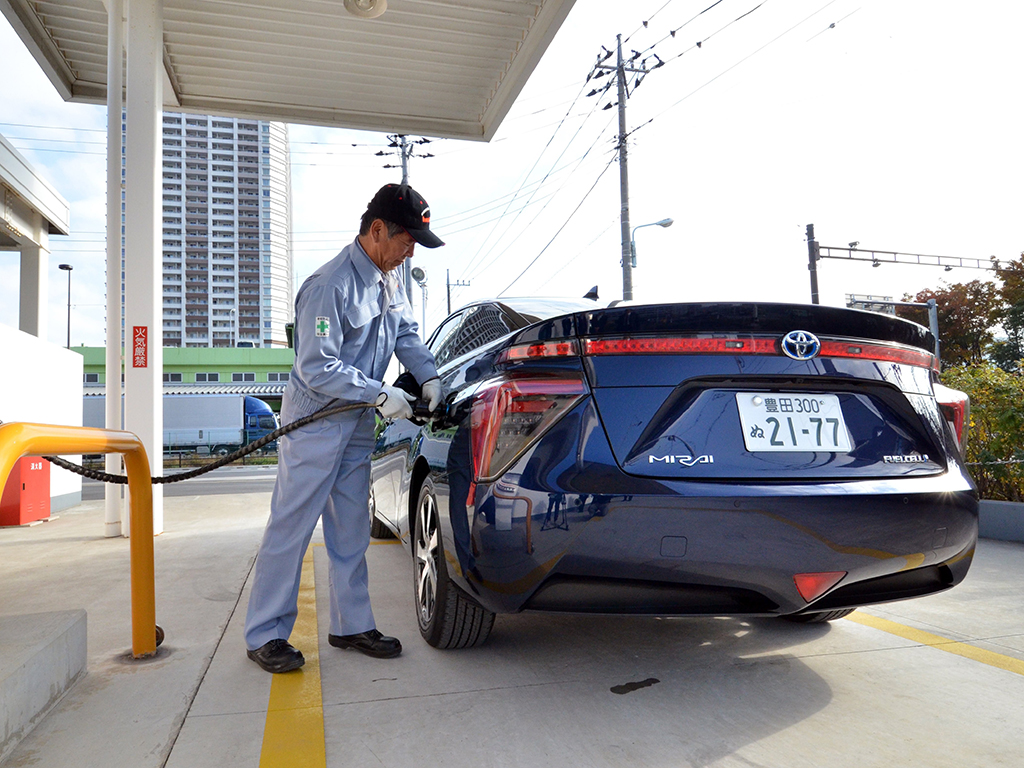Toyota’s free patents to drive hydrogen technology revolution
Toyota has made thousands of fuel cell related patents available to others in the industry, in the hope of spearheading the transition to a “hydrogen society”

A man refuels Toyoto Motor's fuel cell vehicle 'Mirai'. The company is keen to accelerate the use of alternative energy by making its patented hydrogen fuel cell technologies free to all
In a bid to demonstrate the technology’s importance to both the automobile sector and the Japanese economy as a whole, Toyota has opted to make its patented hydrogen fuel cell technologies free to all. Beginning January 5, the automaker will open up approximately 5,680 fuel cell related patents, and continue with a longstanding company tradition of inviting others in the industry to collaborate in reaching shared goals.
The push for the alternative fuel is closely in keeping with the country’s stated ambitions to pursue hydrogen power in place of nuclear
“At Toyota, we believe that when good ideas are shared, great things can happen”, according to the Senior Vice President of Automotive Operations at Toyota Motor Sales, Bob Carter, in a company statement. “The first generation hydrogen fuel cell vehicles, launched between 2015 and 2020, will be critical, requiring a concerted effort and unconventional collaboration between automakers, government regulators, academia and energy providers. By eliminating traditional corporate boundaries, we can speed the development of new technologies and move into the future of mobility more quickly, effectively and economically.”
The push for the alternative fuel is closely in keeping with the country’s stated ambitions to pursue hydrogen power in place of nuclear. Since the Fukushima disaster and the ensuing shutdown, Japan has been dangerously reliant on energy imports to keep the lights on, and only by building on the country’s inadequate hydrogen-refuelling infrastructure can companies like Toyota make hydrogen a viable alternative.
The much-talked about hydrogen powered Toyota Mirai went on sale in December of last year in Japan and will take to European and American roads later in the year. However, if the car is to echo the success of electric alternatives such as Tesla’s Model S, a greater number of refuelling stations are needed.
It remains to be seen how big a part Toyota will play in Japan’s transition to a “hydrogen society”, though the company can do little more at present in terms of incentivising others in the industry to follow suit. With Honda also working on a hydrogen-powered vehicle already, the move will eradicate the costs associated with fuel cell R&D and bring a greater number of participating companies to the fold.













